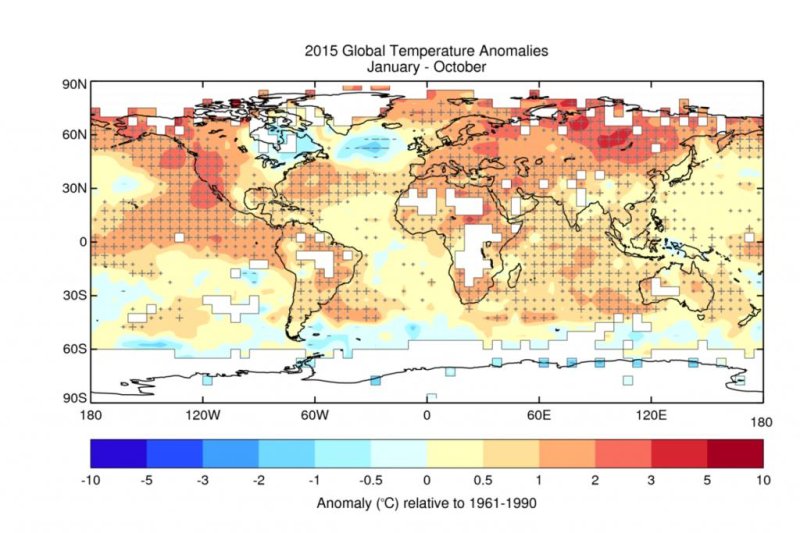A map shows the globe's average temperature between January and October of 2015, a stretch of high temps scientists all but guarantee will place 2015 as the hottest on record. Photo by World Meteorological Organization
GENEVA, Switzerland, Nov. 25 (UPI) -- There are still a few days left in November, but scientists with the United Nations are already willing to declare 2015 the hottest year on record.
The statement is second time this month the U.N.-sanctioned World Meteorological Organization has declared a major a climatic threshold breached.
In early November, WMO scientists reported that for three months this spring the concentration of CO2 in the atmosphere averaged more than 400 parts per million, an all-time high. Now, U.N. scientists say Earth's average temperature is 1 degree Celsius hotter than pre-industrial temperatures.
Scientists also declared 2011 to 2015 the hottest five-year period on record.
"The state of the global climate in 2015 will make history as for a number of reasons," WMO Secretary-General Michel Jarraud said in a press release. "Levels of greenhouse gases in the atmosphere reached new highs."
"2015 is likely to be the hottest year on record, with ocean surface temperatures at the highest level since measurements began," Jarraud continued. "It is probable that the 1 degree Celsius threshold will be crossed. This is all bad news for the planet."
The declaration comes in the form of a "preliminary statement," as the organization's full report on both 2015 and the last five years won't be released until after the Paris climate talks.
Temperature data suggests western North America, and large parts of South America, Africa and southern and eastern Eurasia have witnessed the most dramatic heat spells.
The statement also linked the warming planet to stronger storms, more dramatic droughts and rising sea levels. Global sea level averages during the first half of the year were the highest since records began in 1993.















